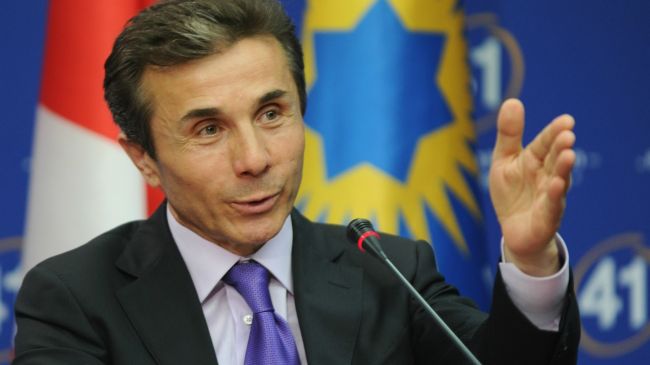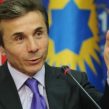
Georgia Adrift, US AWOL After Regime Change
Publication: Eurasia Daily Monitor Volume: 10 Issue: 44
By:

Georgia’s parliamentary elections on October 1, 2012, have ushered in, not merely a rotation of government, but a change of regime, from President Mikheil Saakashvili’s United National Movement (UNM) to billionaire Bidzina Ivanishvili’s Georgian Dream. The latter won an indisputable mandate in the narrow terms of “electoral democracy.” While Ivanishvili has taken over the government, Saakashvili is serving out his final presidential term until October, with rapidly diminishing powers of office. Five months after the elections, Georgia’s socio-economic modernization, institution-building and Euro-Atlantic integration processes are variously slowing down, grinding to a halt or being reversed.
The Obama administration had called for an orderly “transfer of power” in Georgia, and applauded it as a successful “democratic process” in the elections’ wake. The “transfer of power” was an orderly one initially as Saakashvili’s UNM conceded defeat in the elections, promptly handing over the executive power to Ivanishvili’s Georgian Dream. Soon, however, the anticipated orderliness turned into overt persecution of the former government by the new one, a decline in the quality of governance, and rollback of some key reforms (see EDM, November 13, 2012; December 12, 2012; January 29; February 11).
Faced with these outcomes, the United States seems to be reducing its engagement with Georgia. It is de-prioritizing the country in two ways: relative to Georgia’s earlier place among US foreign policy priorities, and relative to Washington’s own focus on Georgia during that country’s election campaign.
Those negative outcomes could not have come as a surprise to US or Western European officials responsible for policy toward Georgia. For, with very few exceptions, Prime Minister Ivanishvili’s winning Georgian Dream coalition looked from the outset like a throwback to the pre-2003, pre-reform Georgia, its mentalities, its ways of doing business economically and politically, its ingrained perception of Russia as centrally important to Georgia, and unpreparedness to choose (much less implement) a Euro-Atlantic orientation for the country.
Compared with President Saakashvili’s government (in office until October 2012), the Ivanishvili government is considerably older, less English-speaking and less Western-educated, as well as provincial by the experience and outlook of Ivanishvili’s entourage and most ministers. With very few exceptions, the new ruling team had been an indifferent bystander to the reforms that ensured Georgia’s state consolidation, economic take-off, key role as an international transit route, and prospects of integration with the West (see EDM, July 24, 2012).
Those transformative processes form the legacy of Saakashvili’s and the United National Movement’s reform efforts from 2004 to 2012. Following the regime change, those processes have been set back on three main fronts: institution-building, governance and foreign policy.
Georgia’s October 2012 elections have practically resulted in state capture by the country’s wealthiest individual. Ivanishvili’s Forbes-rated worth—at $6.5 billion—roughly equals one half of Georgia’s annual gross domestic product. Ivanishvili funded his own party, Georgian Dream, and five allied parties in the eponymous Georgian Dream coalition. Wealth on that scale also allowed Ivanishvili seemingly to promise social relief and investments from his own funds during the electoral campaign (see EDM, July 24, 2012).
The Georgian Dream party’s electoral slate, winner of the parliamentary elections, consists mostly of long-time recipients of Ivanishvili’s funding. These include cultural figures (artists, writers, theater and film personalities) and sports performers (including a significant contingent of wrestlers and karate fighters), all of whom Ivanishvili had generously subsidized as a Maecenas when traditional state subsidies dried up (see EDM, July 24, 2012). Lacking political and legislative experience, these were picked for their presumed loyalty to Ivanishvili. In that sense, Ivanishvili may be said to own the single largest parliamentary bloc. He has also appointed some of his own employees to top law enforcement posts: the new Internal Affairs Minister Irakli Garibashvili and new Prosecutor General Archil Kiblashvili, were recently serving as the head of Ivanishvili’s Cartu Bank Foundation and Ivanishvili’s personal lawyer, respectively.
Within the Georgian Dream six-party coalition, five are “niche parties” with narrow social bases and dependent on Ivanishvili for funding. Ivanishvili is the coalition’s leader, head of the coalition’s dominant party and prime minister, cumulatively. On that basis, he determines the government’s composition, as well as selects the Georgian Dream coalition’s candidate for the upcoming presidential election, at his full discretion.
Ivanishvili recently deprived Defense Minister Irakli Alasania of the post of deputy prime minister, which the defense minister concurrently held. Announcing the demotion, Ivanishvili explained that he was punishing Alasania for the latter’s ambition to run for president on behalf of the Georgian Dream coalition. Alasania may run on behalf of his own (small) party, but Georgian Dream will nominate someone else, Ivanishvili explained (Civil Georgia, January 23; see EDM, February, 14). To cap this public humiliation, Ivanishvili added a tale of adultery involving or affecting several persons (EurasiaNet, February 5). His allies are too dependent on Ivanishvili to risk taking issue with him.
State capture (leveraging economic-financial resources directly into political power) is associated with oligarchic systems (oligarchs dividing assets and power among themselves and continuously re-negotiating that division). Oligarchy is by definition a group phenomenon, involving a certain balance in the distribution of power at the top. Georgia, however, does not have any oligarchic-type group. Ivanishvili is alone at the top.
Georgia had experienced a state-capture attempt for the first time in 2007 by the made-in-Russia billionaire Badri Patarkatsishvili, who failed and died soon thereafter (see EDM, November 12, 2007; Kommersant, February 13, 2008). Patarkatsishvili and Ivanishvili had long been feuding with each other; if they had joined forces they could have shaken the fragile foundations of Georgia’s state institutions. Uniquely, perhaps, in the international system of nation-states, state capture in Georgia involves one individual tycoon, rather than an oligarchy.
The 2012 parliamentary election campaign involved a contest between Ivanishvili’s personal resources and the state’s administrative and media resources (mainly the incumbency advantage), with Ivanishvili apparently capable of outspending the governing party. In subsequent elections, however, both sets of resources—those of the state and Ivanishvili’s private resources—will be combined in a single center of power. Many in Washington and elsewhere had urged Saakashvili and his United National Movement to advance faster toward a system of checks and balances. Yet, the parliamentary elections have resulted in a concentration of power that would exclude any checks and balances, inflicting by the same token a setback to the previous government’s institution-building efforts, and merging political power with unmatched financial power in one pair of hands.




